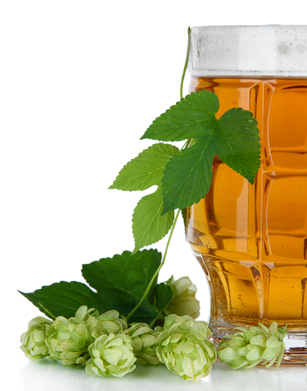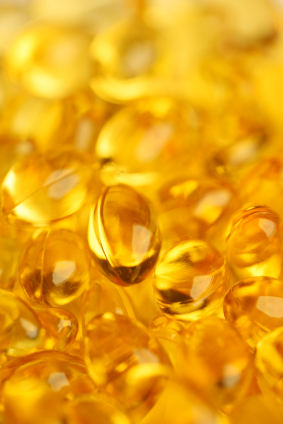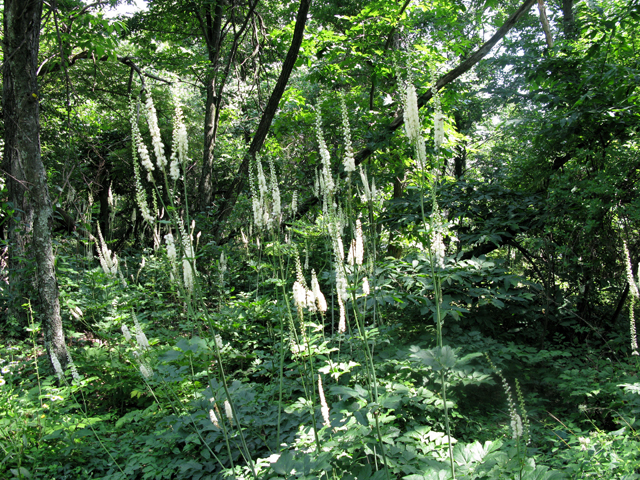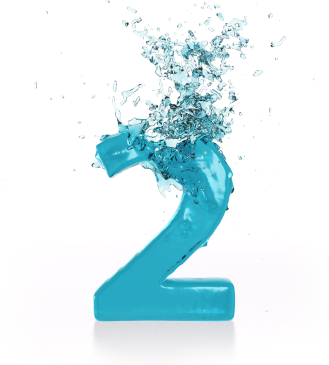Guyside: Caveat adventor
Earlier this week, FlashFree took a look at a homeopathic “Menopause spray” that promises relief of menopause symptoms.
It reminded me that there’s a universe of treatments out there for all sorts of disorders and diseases. When I was diagnosed with bladder cancer eight years ago, I spent lots of time reading about the conventional treatments (surgery, chemo, intravesical chemo, immunotherapy, radiation), and about some of the alternative treatments.
To this point, I’ve only used one form of treatment, because my tumours are relatively minor — a surgical removal of the tumours when they occur.
But alternative treatments or prevention strategies are important for many people. The problem comes with the sheer volume of information out there about all sorts of treatments, especially the less conventional ones, and the way things can change. Here’s one example:
For a long time, people concerned about prostate cancer were advised to take selenium and vitamin E supplements. But that advice changed a few years ago when a major trial began to discover that instead of being associated with reducing probability of prostate cancer, no benefit was being observed, and there were concerns.
Then late last year a research report found that instead of reducing likelihood, the supplements were associated with increasing the likelihood of a prostate cancer diagnosis.
The selenium-vitamin E research illustrates a few things. First, science changes. That’s the point of science — to understand more about a process or mechanism. And that’s why if you’re managing your health, you should be always ready to learn and to adapt to new findings.
Second, it’s good to have trusted professionals on your side. I enjoy being an involved patient, and I also enjoy helping family members or friends with medical issues if they ask for help. But I don’t believe that I’m necessarily more knowledgeable than a medical professional. It’s finding the balance between unquestioningly accepting every action recommended by your doctor or doctors and striking out on your own with no expert interventions. Using skills like those listed in the National Coalition for Cancer Survivors’ page on self-advocacy can make you a better patient and maybe a healthier one.
Third, miracles are rare. Google is a great asset, but there’s a lot of information out there that’s sketchy at best. Maintain a healthy skepticism about EVERYTHING you read or encounter. Ask yourself — or a professional — how likely it is that a root, a supplement, or some other unconventional treatment is a MIRACLE CURE for a disorder or disease. Don’t let depression or desperation colour your thoughts.
And for myGuyside readers: Happy Fourth of July!
Read MoreAre hops the key to relieving menopausal symptoms?
The other day, a colleague pointed me to an Andrew Weil piece on hops and menopause. And while I’ve not checked out the association lately, I did write a few pieces over the years about the potential benefits of hops and hop extract for relieving hot flashes and even boosting bone health. So, I took a gander over at the National Library of Medicine database and ran across a minireview from 2013. Here’s a bit of information for those of you who enjoy a beer or two.
Hop extract (better know in scientific circles as Humulus lupulus) has had a long history of use as a medicinal herb, especially for gynecologic conditions. It is even recognized by the European Medicines Agency, which has published a monograph outlining its safety and effectiveness. But even more importantly, hops evidently contains a subclass of flavonoids — plant metabolites — that have been shown to be the most potent phytoestrogen known to date. Clinical studies in women suggest that it can offer some relief from hot flashes, help prevent osteoporosis and impact sexual desire. And the fact that it is the ‘most’ potent? It’s interesting because most people don’t realize that to truly benefit from genistein, the most potent phytoestrogen derived from soy, one must be exposed to it throughout their lifetime. On the other hand, studies of 8-PN show that it is quickly absorbed and blood levels can also be reached fairly quickly so that women can benefit relatively shortly after taking a supplement. Less clear is the proper dosage need to alleviate menopause complaints. This hops extract has also been studied in vaginal gel form for vaginal atrophy, although no firm conclusions could be drawn for that use.
So far, the benefits of 8-PN appear to be limited to hot flashes, bone health and sexual motivation. The data on safety are less robust.
Will drinking beer help your hot flashes? The answer isn’t clear. But I still believe that there is hope for hops.
Read MoreSleep and the ‘pause: valerian and lemon balm?
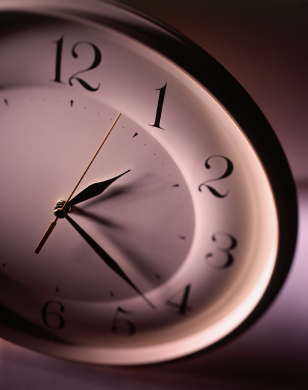 Here’s a sobering thought: by the year 2030, over one billion women worldwide will be affected by menopausal symptoms, and that number is projected to increase by 47 million women annually. Sleep issues, namely disruption in sleep patterns caused by hormones, stress, hot flashes, night sweats and aches and pains affect roughly 81% to 83% of women in menopause. Of these, more than half report insomnia.
Here’s a sobering thought: by the year 2030, over one billion women worldwide will be affected by menopausal symptoms, and that number is projected to increase by 47 million women annually. Sleep issues, namely disruption in sleep patterns caused by hormones, stress, hot flashes, night sweats and aches and pains affect roughly 81% to 83% of women in menopause. Of these, more than half report insomnia.
If you do the math, the sleep issue suddenly becomes very, very big!
Short of going the prescription route, there are a variety of strategies that reportedly help. You can read about some of those here. And, I’m happy to add one more: valerian/lemon balm.
Valerian is an herb used in variety of forms since the time of Ancient Greece. Its use in insomnia was first reported in the second century and it was even used during WWII to alleviate stress during air raids. Today, it is widely used for stress and sleep issues. While few adverse effects are associated with valerian, it may interact with benzodiazepines (e.g. xanax), barbituates or drugs that suppress the central nervous system (morphine, propofol); caution is also advised if you are taking St. John’s Wort, kava and melatonin.
Lemon balm also has a long history in traditional medicine, and as long ago as the middle ages, was used to combat stress and anxiety, promote sleep and calm nerves. While it is relatively benign, experts say that caution should be used if you are also taking sedatives or thyroid medications, or antiretroviral agents.
A few safety issues aside, the combination of the two is potentially explosive! According to new study findings, a combination — 160 mg valerian/80 mg lemon balm — in capsule form significantly improved sleep quality, patterns of sleep and sleep duration in women experiencing menopause symptoms by as much as 36%. In fact, over a month one month period, these improvements were as much as 28% higher than findings in women taking placebo capsules. What’s more, the amount of valerian used in the capsule was more than two- to four-fold lower than doses traditionally used in sleep studies demonstrating significant sleep quality improvements; this speaks to the addition of lemon balm. Additionally, the benefits appear to occur without side effects; no adverse effects were reported.
Sleep and the ‘pause….valerian and lemon balm might just do the trick!
Read MoreMsFLASH and omega-3s
In early August, I posted two pieces about MsFLASH –Menopause Strategies: Finding Lasting Answers for Symptoms and Health — a network of studies evaluating potentially promising treatments for common menopausal symptoms. Started by the National Institutes of Health, MsFLASH comprises five research centers in Boston, Oakland, Philadelphia, Seattle and Indianapolis who are exploring various interventions for hot flashes, night sweats, mood disorders and sexual issues.
One of these trials set out to evaluate the role of omega-3 fatty acids in menopause, more specifically, whether or not omega-3s would be useful for alleviating hot flashes in women who prefer alternative strategies. Although the benefits of omega-3s are widespread, researchers have not been able to prove that they work against hot flashes. Consequently, over three months, 346 women took either three omega-3 capsules or placebo daily in addition to yoga, aerobics or usual activity. The women reported having roughly 8 hot flashes a day at the start of the study.
Unfortunately, the verdict is still out. Taking omega-3s appeared to have little effect on hot flash frequency or bother; declines in both measures were similar among women whether they were taking the fish oil or placebo (an average 35% decline in both groups and in both variables). What’s more, taking daily fish oil supplements didn’t appear to help sleep or mood. Personally, I find the lack of effect on mood surprising since there are data showing a benefit on depression, especially when it comes to DHA. However, even the researchers acknowledge that the lack of effect here might be due to the degree of depressive or anxiety symptoms that the women in this study experienced.
Regardless, if you are taking fish oils and have seen an improvement in symptoms, I would love to hear from you. Do they help? The search for the magic bullet for hot flashes continues but in the meantime, the more we share, the more we collectively know.
Read More
Black cohosh: dose matters
[Image: Thomas L. Muller, The Lady Bird Johnson Wildflower Digital Image Library at the University of Texas, Austin]
I have written frequently about black cohosh on Flashfree. And consistently, the relationship between black cohosh and a decline in certain symptoms has been demonstrated in clinical trials. However, here’s the rub: both formulation and dose appears to matter.
About a year ago, findings from scientifically sound (i.e. randomized, controlled, double-blind) trial demonstrated that taking the higher dose formulation of a black cohosh extract (Ze 450) yielded greater benefits in terms of symptoms severity and quality of life in A group of menopausal women. However, what happens over the long term? Do symptoms reappear or do improvements continue? And, is it really true that dose matters?
In a follow up study, researchers selected over four hundred women with menopausal complaints who were seeing about 100 physicians in general and specialty practices. Initially, these women were treated with a high dose of black cohosh root extract (13 mg) for 3 months and either continued with that dosing for another 6 months or were told by their physician to take a smaller, 6.5 mg dose for 6 months. Overall, a majority of women had moderately severe symptoms (most commonly hot flashes, night sweats, insomnia, anxiety and depression) and about two thirds had received previous treatment for them. Importantly, none of the women taking concurrent hormone therapy were included in the final evaluation.
Over the course of 9 months, black cohosh extract significantly decreased symptom severity by roughly 56% as measured by a scientific menopause scale. More improvements continued to be seen over time, regardless of dose. However, almost 90% of women responded to the high dose extract versus 78% of women responding to the low dose; this suggests that greater benefit can be realized among greater numbers of women with a higher dose. Indeed, women taking the high dose, experienced improved relief of a variety of symptoms (e.g. hot flashes, sweating, dizziness, joint and muscle pain, etc) over time. Both doses were also well tolerated in about 95% of women, although the higher dose was associated with some gastro issues in 12 women).
Another interesting point about this study was that it was conducted in what researchers refer to an ambulatory setting, meaning that it was not a controlled trial situation. Because similar results were observed under controlled conditions, conducting the extension under a more realistic environment allowed them to draw the conclusion that the findings reflected those that would likely be seen in the general population.
The black cohosh extract used in these studies is called Cimefemin® uno (6.5 mg) and Cimefemin® forte (13 mg) and is not available in the States, at least not yet. Meanwhile, if you wish to try black cohosh, read through the archives, speak to your practitioner and used a standardized formulation. It looks like it’s a win-win.
Read More
Wednesday Bubble: Two is the Magic Number?
When it comes to Traditional Chinese Medicine (TCM), is two the magic number? A variety of studies have examined the utility of TCM for menopausal symptoms and some have shown good benefit. However, does combining distinct forms of TCM yield better outcomes? Moreover, are these outcomes equal to those achieved by hormone therapy?
They may very well be, according to a small study that was presented this past May at the International Research Congress on Integrative Medicine and Health. Published in BMC Complementary and Alternative Medicine, the study explores the use of a Chinese herbal formulation named Kun Bao Wan alone and in combination with acupuncture and compares it to hormone therapy. Available in powder form and priced at approximately $8.00 a box, Kun Bao Yan is used in Chinese medicine to balance hormone levels, relieve insomnia and improve blood circulation to restore healthy metabolism. A web and database search yielded almost no information on side effects, reinforcing the need to work directly with a practitioner versed in Chinese medicine versus using it on your own.
Regardless, over a two-month period, 57 women in peri- or full on menopause took Kun Bao Wan (5 gm. twice a day) alone or in combination of 5 acupuncture sessions a month, or were assigned hormone therapy. During this time, symptoms (hot flashes, tingling, insomnia, nervousness, weakness, dizziness, palpitations) were measured with a scientifically validated index. The researchers also assessed hormone levels (FSH, estradiol) and symptom severity and frequency.
The findings appear to indicate that while all three strategies can significantly decrease menopause symptom scores, better results were achieved with Chinese medicine plus acupuncture compared to Chinese medicine alone, particularly in women who were postmenopausal. Additionally, Chinese medicine plus acupuncture was on par with hormone therapy with regards to its overall effects on FSH. Importantly, none of these strategies appeared to affect levels of circulating natural estradiol.
Granted, this study is quite small. But it does show that with Chinese Medicine, two combined modalities may be better than one. And are certainly on par with hormone therapy — and perhaps even safer.
Read More






